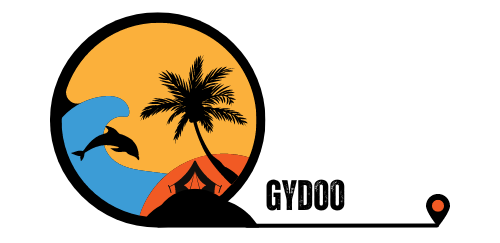Hey fellow travelers! Just got back from exploring Guinea-Bissau, and let me tell you – it’s nothing like what you’d expect. This tiny West African nation packs some serious surprises, from Portuguese colonial architecture to the world’s finest cashews. Let’s check into what makes this place tick.
Quick Country Facts
| Detail | Information |
|---|---|
| Population | 2 million |
| Area | 36,000 sq km |
| Capital | Bissau |
| Languages | Portuguese (official), Creole |
| Independence | July 5, 1975 |
| Currency | West African CFA |
The Real Story Behind Power
Here’s something wild – until 7-8 years ago, most people here didn’t even have electricity. Today, the entire country runs on:
- One Turkish power ship
- Funded by World Bank
- Burns heavy fuel oil
- Powers the whole nation
The Power Situation
| Before | Now | Future Plans |
|---|---|---|
| No electricity | Power ship dependent | Dam construction planned |
| Only rich had generators | Everyone has access | People saving for solar |
| No appliances | Modern amenities | Uncertain sustainability |
Daily Life & Costs
Let me break down what things actually cost here:
| Item/Service | Cost (CFA) | Approx USD |
|---|---|---|
| Hostel bed | 8,000 | $13 |
| Indian meal | 8,000-10,000 | $13-16 |
| Taxi ride | 200-1000 | $0.30-1.60 |
| Gym session | 3,500 | $5.80 |
| Egg tray (30) | 4,000 | $6.60 |
| 1L Milk | 1,000 | $1.60 |
Cultural Mix
The population breaks down into several ethnic groups:
- Fula (30%)
- Balanta (30%)
- Mandinka (15%)
- Manjak (15%)
- Others (10%)
Religion Breakdown
- Islam: 45-50%
- Christianity: 20%
- Traditional beliefs: 30%
Hidden Stories
The Cashew Connection
Did you know Guinea-Bissau produces some of the world’s best cashews? It’s their economic lifeline:
- Main export
- Superior quality
- Major Indian trade connection
- Trees everywhere
The Portuguese Touch
Walking through Bissau feels like a mini Portugal:
- Colonial architecture
- Portuguese language legacy
- European-style squares
- Historic churches
Local Insights
Transport Tips
- Blue taxis are standard
- Many military checkpoints
- Roads often unpaved
- Expect long travel times
Communication
- Portuguese dominance
- Limited English speakers
- Creole widely used
- Basic Spanish helps
Safety & Practical Tips
Stay Smart
- Avoid photography at checkpoints
- Keep documents handy
- Respect military presence
- Learn basic Portuguese phrases
- Travel during daylight
Food & Drink
- Indian restaurants available
- Local food mostly seafood
- Expensive imported goods
- Limited food options
Where to Stay
| Area | Pros | Cons |
|---|---|---|
| City Center | Historic buildings, walkable | More expensive |
| Near Market | Local experience, food access | Noisier |
| Outskirts | Quieter, cheaper | Transportation needed |
Must-Know Tips
Best Practices
- Get local currency (CFA)
- Download offline maps
- Book accommodation in advance
- Pack basic necessities
- Bring cash (euros preferred)
Internet & Communication
- Limited WiFi
- Unreliable cell service
- E-sims often problematic
- Download offline content
Meeting Locals
The best part about Guinea-Bissau? The people! Tips for connecting:
- Learn basic greetings
- Respect local customs
- Visit local hangouts
- Join community activities
- Stay in social accommodations
Conclusion
Guinea-Bissau isn’t your typical tourist destination. It’s raw, real, and sometimes challenging. But if you’re looking for authentic West African experiences and genuinely friendly people, this place delivers. Just remember – pack patience, bring cash, and keep an open mind.
When to Visit
| Season | Weather | Notes |
|---|---|---|
| Dry (Nov-May) | Better roads | Higher prices |
| Wet (June-Oct) | Lush scenery | Difficult travel |
| Cashew (Mar-May) | Peak activity | Best time for markets |
Last Updated: October 2024
Author: Travel Blogger at Gydoo
Tags: West Africa travel, Guinea-Bissau, off the beaten path, adventure travel, African culture, travel tips
Note: Conditions can change rapidly. Always check current situations before traveling.


